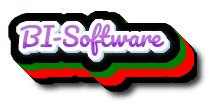In today’s competitive business landscape, having a reliable Customer Relationship Management (CRM) system in place is no longer a luxury, but a necessity. Switzerland, with its thriving economy and highly developed business infrastructure, is no exception. CRM software in Switzerland (Schweiz) has become an essential tool for businesses of all sizes and industries to manage their customer interactions, sales, and marketing efforts.

What is CRM Software?
Before diving into the world of CRM software in Switzerland, it’s essential to understand what CRM software is and what it does. CRM software is a tool that helps businesses manage their interactions with customers and potential customers. It’s a platform that stores customer data, tracks customer interactions, and provides insights to help businesses make informed decisions. CRM software typically includes features such as contact management, sales force automation, marketing automation, and customer service and support.
Benefits of CRM Software
Implementing CRM software in your business can bring numerous benefits, including:
- Improved customer relationships: By storing all customer interactions in one place, businesses can better understand their customers’ needs and preferences, leading to more personalized and effective customer service.
- Increased sales: CRM software can help businesses identify new sales opportunities, track leads, and automate sales processes, resulting in higher sales conversion rates.
- Enhanced marketing efforts: By analyzing customer data, businesses can create targeted marketing campaigns, increasing the effectiveness of their marketing efforts.
- Improved efficiency: Automating routine tasks and providing real-time visibility into customer interactions, CRM software can help businesses streamline their operations and reduce costs.
CRM Software Market in Switzerland
The CRM software market in Switzerland is highly competitive, with a wide range of providers offering a variety of solutions. The market can be divided into two main categories: on-premise and cloud-based solutions.
- On-premise solutions: Traditional on-premise CRM solutions are installed and managed on a company’s own servers. This approach provides greater control over data and security but requires significant upfront investment in hardware and maintenance.
- Cloud-based solutions: Cloud-based CRM solutions are hosted by the provider and accessed via the internet. This approach provides greater flexibility, scalability, and cost savings, as businesses only pay for the features and services they need.
Popular CRM Software Providers in Switzerland
Some popular CRM software providers in Switzerland include:
- Salesforce: A leading provider of cloud-based CRM solutions, offering a range of products, including Sales Cloud, Marketing Cloud, and Service Cloud.
- Microsoft Dynamics: A provider of on-premise and cloud-based CRM solutions, offering a range of products, including Dynamics 365, CRM Online, and CRM On-Premise.
- Zoho CRM: A cloud-based CRM solution that offers a range of features, including contact management, sales force automation, and marketing automation, at an affordable price.
- SAP CRM: A provider of on-premise and cloud-based CRM solutions, offering a range of products, including SAP CRM, SAP Sales Cloud, and SAP Service Cloud.
Key Features to Look for in CRM Software
When selecting CRM software for your business in Switzerland, consider the following key features:
- Contact management: Look for a solution that provides robust contact management features, including contact profiles, activity tracking, and contact segmentation.
- Sales force automation: Choose a solution that provides automated sales processes, including lead management, opportunity management, and sales forecasting.
- Marketing automation: Select a solution that provides automated marketing features, including email marketing, campaign management, and lead nurturing.
- Customer service and support: Opt for a solution that provides customer service and support features, including case management, ticketing, and5. Integration and customization: Ensure that the solution integrates with your existing systems and can be customized to meet your specific business needs.
Challenges of Implementing CRM Software in Switzerland
While implementing CRM software can bring numerous benefits, there are also challenges to consider, including:
- Data migration: Migrating existing customer data to the new CRM system can be time-consuming and challenging.
- User adoption: Ensuring that employees use the CRM system consistently and effectively can be difficult.
- Customization and integration: Customizing and integrating the CRM system with existing systems can require significant IT resources and expertise.
- Data security: Ensuring the security and integrity of customer data is essential, particularly in highly regulated industries.
Best Practices for Implementing CRM Software in Switzerland
To overcome the challenges of implementing CRM software, follow these best practices:
- Define clear goals and objectives: Clearly define the goals and objectives of the CRM implementation project.
- Choose the right solution: Select a CRM solution that meets your business needs and requirements.
- Plan for data migration: Plan and execute a data migration strategy to minimize disruptions to the business.
- Provide training and support: Provide employees with comprehensive training and ongoing support to ensure successful adoption of the CRM system.
- Monitor and evaluate performance: Continuously monitor and evaluate the performance of the CRM system, making adjustments and improvements as needed.
Frequently Asked Questions (FAQs)
- What is CRM software, and how can it benefit my business in Switzerland?
CRM software is a tool that helps businesses manage their customer interactions, sales, and marketing efforts. Implementing CRM software can bring numerous benefits, including improved customer relationships, increased sales, enhanced marketing efforts, and improved efficiency. - What are the different types of CRM software available in Switzerland?
There are two main types of CRM software: on-premise and cloud-based solutions. On-premise solutions are installed and managed on a company’s own servers, while cloud-based solutions are hosted by the provider and accessed via the internet. - What features should I look for in CRM software for my business in Switzerland?
When selecting CRM software, consider key features such as contact management, sales force automation, marketing automation, customer service and support, and integration and customization. - How can I ensure successful implementation of CRM software in my business in Switzerland?
To ensure successful implementation, define clear goals and objectives, choose the right solution, plan for data migration, provide training and support, and continuously monitor and evaluate performance.
Conclusion
Implementing CRM software is a crucial step for businesses in Switzerland looking to improve their customer relationships, increase sales, and enhance marketing efforts. By understanding the benefits of CRM software, selecting the right solution, and following best practices for implementation, businesses can overcome the challenges and achieve successful adoption. Whether you’re a small startup or a large enterprise, CRM software can help you achieve your business goals and stay ahead of the competition. So, why not take the first step today and start exploring the world of CRM software in Switzerland?
Closure
Thus, we hope this article has provided valuable insights into The Ultimate Guide to CRM Software in Switzerland (Schweiz). We hope you find this article informative and beneficial. See you in our next article!
